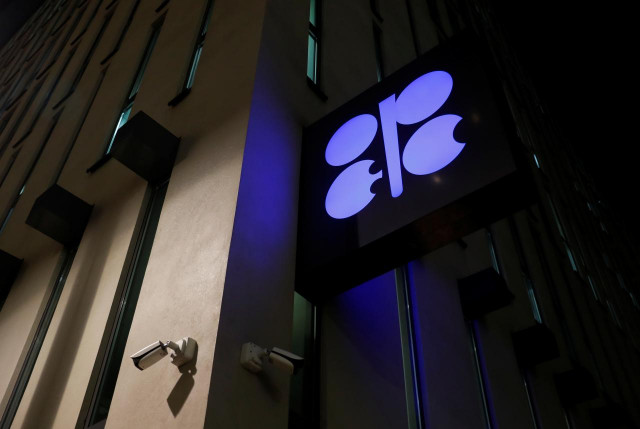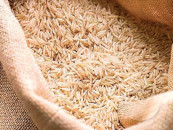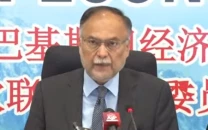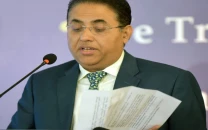OPEC waiting for Russia before deciding output cut
Reduction will be between 1-1.3 million bpd: delegate

Reduction will be between 1-1.3 million bpd: delegate. PHOTO: REUTERS
Five delegates said the group was waiting for news from Russia as Energy Minister Alexander Novak had flown back from Vienna for a possible meeting with President Vladimir Putin. Novak returns to Vienna on Friday for talks between OPEC and its allies, following discussions among OPEC producers on Thursday.
"I am optimistic. There will be a deal, but it is unclear how much OPEC and how much non-OPEC will contribute. It is still under discussion," one delegate said. Three delegates said OPEC and its allies could cut output by 1 million barrels per day if Russia contributed 150,000 bpd of that reduction.
After 57 years: Qatar to withdraw from OPEC, focus on gas exports
If Russia contributed around 250,000 bpd, the overall cut could exceed 1.3 million bpd. "The cut will be between 1 and 1.3 million bpd. We just have to see how it will be distributed," another delegate said.
Novak said on Thursday that Russia would find it harder to cut oil output in winter than other producers because of the cold weather. The Middle East-dominated Organisation of the Petroleum Exporting Countries (OPEC) plans to cut output despite pressure from US President Donald Trump to support the global economy by keeping oil prices low.
OPEC's de facto leader, Saudi Arabia, has indicated it wants the organisation and its allies to curb output by at least 1.3 million bpd, or 1.3% of global production. Riyadh wants Moscow to contribute at least 250,000-300,000 bpd to the cut but Russia insists the amount should be only half of that, OPEC and non-OPEC sources said.
The cuts would take September or October 2018 as baseline figures and last from January to June, Oman's Oil Minister Mohammed bin Hamad Al-Rumhy said on Wednesday.
Saudi Arabia works on convincing Russia to join oil cuts
Oil prices have crashed by almost a third since October to around $60 per barrel as Saudi Arabia, Russia and the UAE have raised output since June after Trump called for higher production to compensate for lower Iranian exports.
On Thursday, Brent futures fell more than 2% as traders began to doubt OPEC would deliver a significant cut. Russia, Saudi Arabia and the US have been vying for the position of top crude producer in recent years. The US is not part of any output-limiting initiative due to its anti-trust legislation and fragmented oil industry.
Trump raises pressure
Iranian exports have plummeted after Washington imposed fresh sanctions on Tehran in November. But Washington gave sanctions waivers to some buyers of Iranian crude, further raising fears of an oil glut next year.
"Hopefully, OPEC will be keeping oil flows as is, not restricted. The world does not want to see, or need, higher oil prices!" Trump wrote in a tweet on Wednesday. Possibly complicating any OPEC decision is the crisis around the killing of journalist Jamal Khashoggi at the Saudi consulate in Istanbul in October.
Trump has backed Saudi Crown Prince Mohammed bin Salman despite calls from many US politicians to impose stiff sanctions on Riyadh. "We think OPEC will spend some time to choose the words being used. Being too cautious on the words, to please President Trump, runs however the risk of diluting the message," said Olivier Jakob from Petromatrix consultancy.



















COMMENTS
Comments are moderated and generally will be posted if they are on-topic and not abusive.
For more information, please see our Comments FAQ